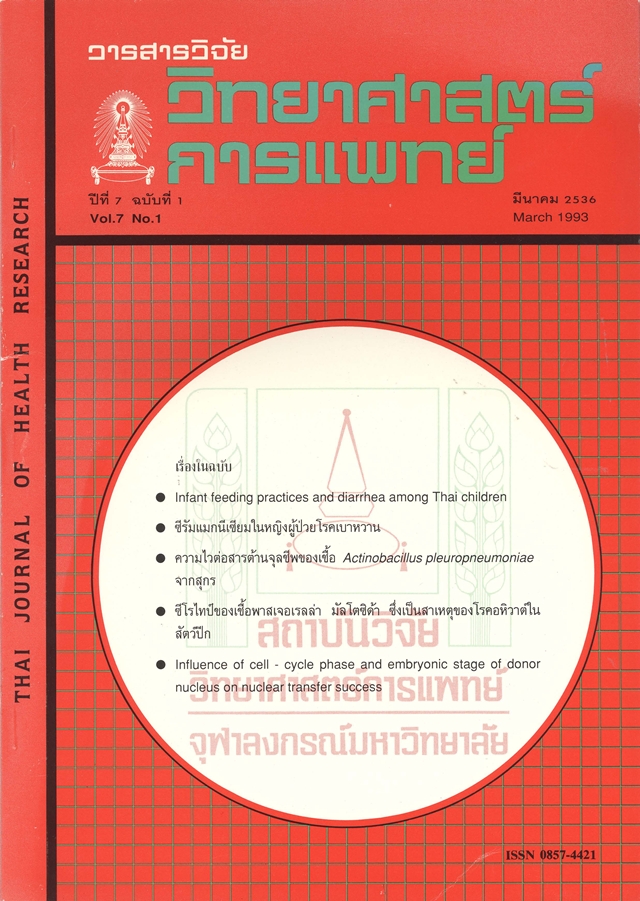Influence of Cell-Cycle Phase and Embryonic Stage of Donor Nucleus on Nuclear Transfer Success
Keywords:
Cell-cycle phase, Embryonic stage, Donor nucleus, Nuclear transferAbstract
Nuclear transfer is a new biotechnology in reproduction. The technique is well developed by transfer the donor nuclei of selected embryos to cytoplasm of recipient oocyte. Unfortunately up to now, the success of nuclear transfer is quite low, only 20% can develop in vitro to blastocyst stage and not more than 3% of nuclear transfered embryos can survive to term after transfer to recipient. Various factors can affect in vitro and in vivo development. This paper discusses the two essential factors which are the cell-cycle phase of donor nuclei and the stage of embryos to the nuclear transfer success.
Downloads
Published
2019-05-17
How to Cite
Techakumphu, M., & Heyman, Y. (2019). Influence of Cell-Cycle Phase and Embryonic Stage of Donor Nucleus on Nuclear Transfer Success. Journal of Health Research, 7(1), 27–33. retrieved from https://he01.tci-thaijo.org/index.php/jhealthres/article/view/189808
Issue
Section
REVIEW ARTICLE







